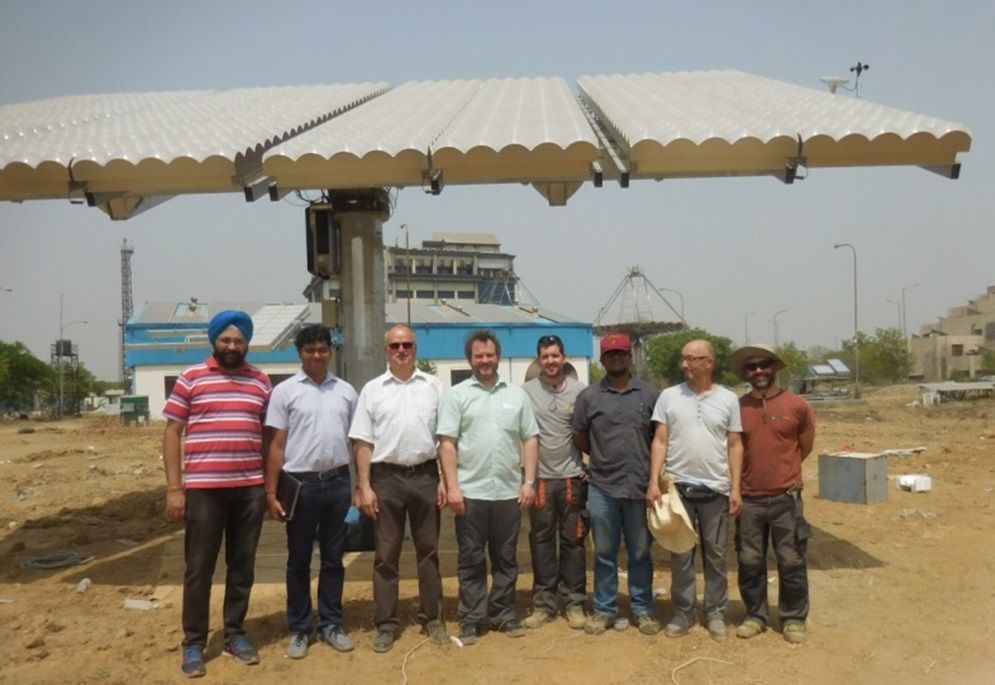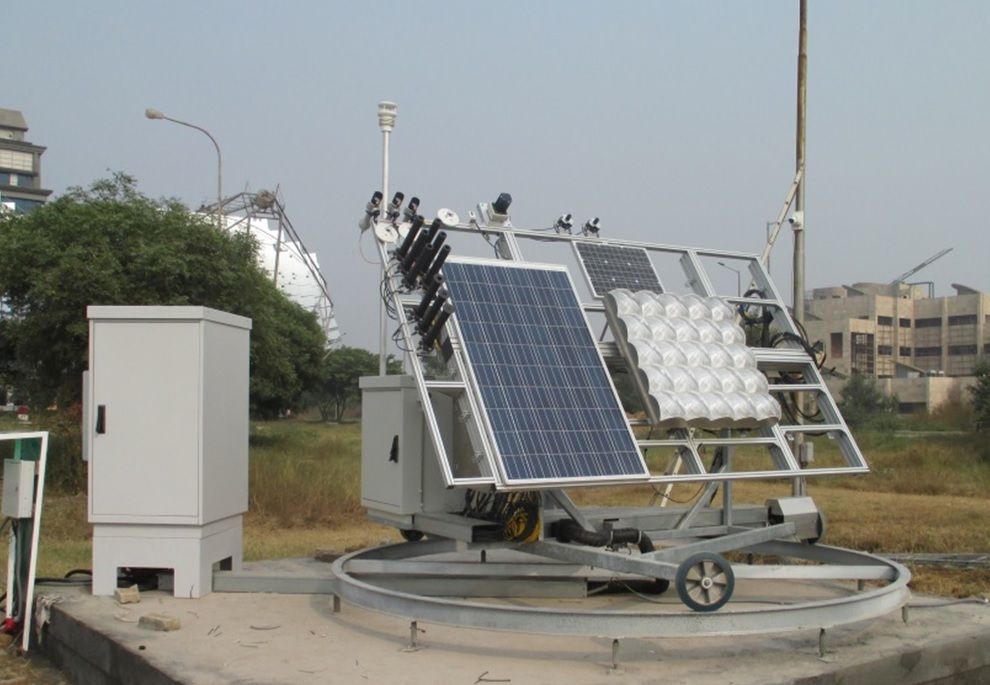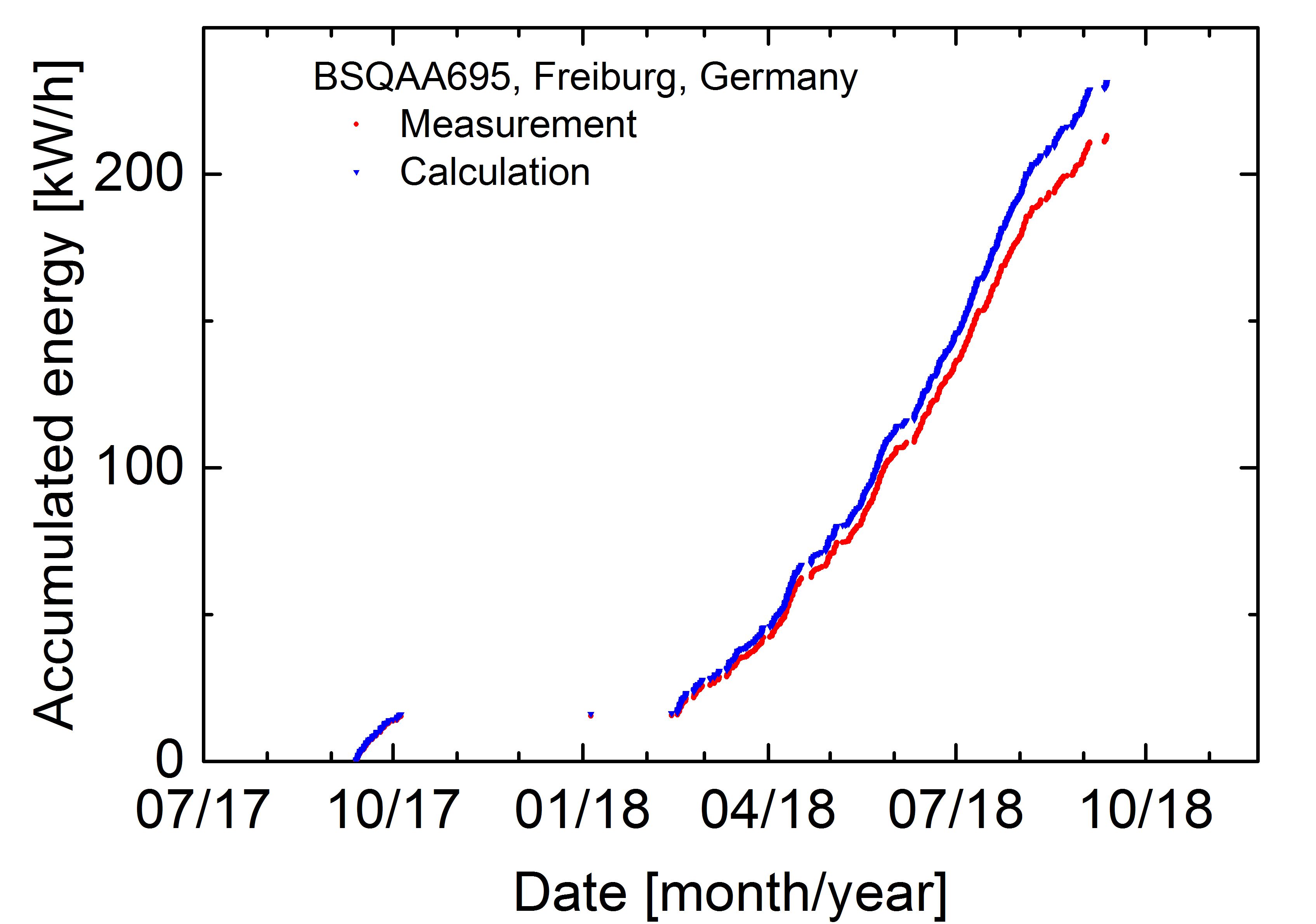| Duration: | 01/2016 - 09/2021 |
| Contracting Authority/ Sponsors: | The German Government's Development Bank KfW through funds by the Federal Ministry for the Environment, Nature Conservation and Nuclear Safety (BMUB) in the frame of the International Climate Initiative |
| Project Partners: | NETRA, NTPC, India |
| Project Focus: |
CPVIndia – Research Cooperation on Innovative Climate Technology



The main objective of the project is the installation and scientific evaluation of a 53kW CPV system for power generation in India. In addition to the CPV system, an outdoor measurement stand was installed for the electrical characterization of (C)PV modules. CPV system and outdoor measurement stand are used to scientifically evaluate CPV power plant installations in India. This evaluation takes place in close cooperation with our Indian partner NETRA NTPC. This should enable a knowledge transfer in the field of CPV.
Concentrator photovoltaics (CPV) is a technology for cost-effective solar power generation in areas with high direct solar irradiance. In CPV modules the sunlight is focused by lenses onto small, highly-efficient multi-junction solar cells. These multi-junction cells achieve efficiencies exceeding 40%. CPV modules follow the path of the sun on tracking systems and use the direct sunlight. Together with NETRA, the research facility of the largest Indian energy supplier NTPC Limited, Fraunhofer ISE investigates the specific requirements resulting from the application of CPV in India. The project "CPVIndia" is funded by the Kreditanstalt für Wiederaufbau KFW (The German Government's Development Bank) with resources from the German Federal Ministry for the Environment, Nature Conservation, Building and Nuclear Safety BMU, as part of the International Climate Initiative.
India is a country with a high and rapidly growing energy demand. The Indian government has set targets for the expansion of renewable energies in order to meet this demand and promote an emission-neutral development of the economy. Aim of the project is to introduce CPV as a research topic in India and to establish it as a power plant technology in the medium term.
One of the central goals of the project is knowledge transfer, especially in the area of CPV. Numerous seminars have been held by researchers from Freiburg for their Indian colleagues. Another focus is the characterization of CPV technology in the context of local climate conditions in India. Four commercial CPV systems have been installed for this purpose (Fig. 1). With these for example, soiling effects of can be investigated. Fraunhofer ISE has also installed a tracking unit (Fig. 2) on the test site of the Indian research partner, which can be flexibly used for the measurement of CPV or PV modules. Beyond the transfer of CPV know-how to the Indian colleagues, the project also aims for the improvement of models for the energy yield prediction for CPV. First findings on this are shown in Figure 3.